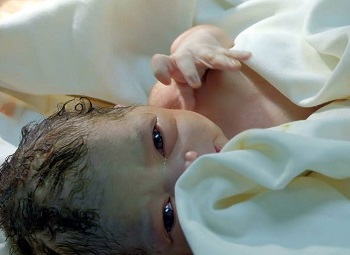Nearly 386,000 children will be born worldwide on New Year’s Day, says UNICEF
UNICEF challenges nations around the world to make sure more newborns survive their first days of life
Approximately 386,000 babies will be born on New Year’s Day, UNICEF said on Jan 01, 2018. Of these, over 90 per cent will be born in less developed regions.

2018’s first baby – a girl – was born at 1.44 am on New Year’s Day in Suva, the island capital of Fiji.
Kiribati’s Christmas Island in the Pacific will most likely welcome 2018’s first baby; the United States, its last. Globally, over half of these births are estimated to take place in nine countries:
• India — 69,070
• China — 44,760
• Nigeria — 20,210
• Pakistan — 14,910
• Indonesia — 13,370
• The United States — 11,280
• The Democratic Republic of Congo — 9,400
• Ethiopia — 9,020
• Bangladesh — 8,370
While many babies will survive, some will not make it past their first day. In 2016, an estimated 2,600 children died within the first 24 hours every day of the year. For almost 2 million newborns, their first week was also their last. In all, 2.6 million children died before the end of their first month. Among those children, more than 80 per cent died from preventable and treatable causes such as premature birth, complications during delivery, and infections like sepsis and pneumonia.
“This New Year, UNICEF’s resolution is to help give every child more than an hour, more than a day, more than a month — more than survival,” said Stefan Peterson, UNICEF’s Chief of Health. “We call on governments and partners to join the fight to save millions of children’s lives by providing proven, low-cost solutions.”
Over the past two decades, the world has seen unprecedented progress in child survival, halving the number of children worldwide who die before their fifth birthday to 5.6 million in 2016. But despite these advances, there has been slower progress for newborns. Babies dying in the first month account for 46 per cent of all deaths among children under five.
Next month, UNICEF will launch Every Child Alive, a global campaign to demand and deliver affordable, quality health care solutions for every mother and newborn. These include a steady supply of clean water and electricity at health facilities, the presence of a skilled health attendant during birth, disinfecting the umbilical cord, breastfeeding within the first hour after birth, and skin-to-skin contact between the mother and child.
“We are now entering the era when all the world’s newborns should have the opportunity to see the 22nd century,” added Peterson. “Unfortunately, nearly half of the children born this year likely won’t. A child born in Sweden in January 2018 is most likely to live to 2100, while a child from Somalia would be unlikely to live beyond 2075.”
Source:United Nations Children's Fund
- 322 reads
Human Rights
Fostering a More Humane World: The 28th Eurasian Economic Summi

Conscience, Hope, and Action: Keys to Global Peace and Sustainability

Ringing FOWPAL’s Peace Bell for the World:Nobel Peace Prize Laureates’ Visions and Actions

Protecting the World’s Cultural Diversity for a Sustainable Future

Puppet Show I International Friendship Day 2020

